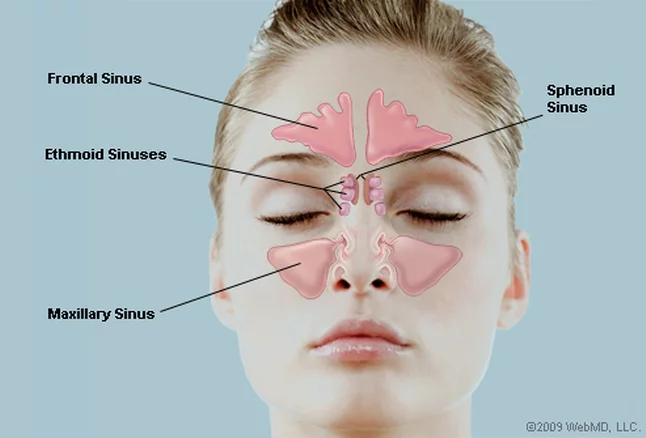Why Sinus Problems Are on the Rise in Urban Areas: Insights from Rhinologists

Urbanization brings convenience and opportunities, but it also comes with unique challenges for health, especially when it comes to respiratory and nasal health. In recent years, rhinologists have observed a notable increase in sinus-related issues among people living in cities. From rising pollution levels to high-stress lifestyles, the urban environment can take a toll on nasal health, leading to chronic sinus problems that affect millions.
The Urban Environment and Its Effect on Sinus Health
The human respiratory system is designed to filter and protect against irritants, but the challenges of city life can overwhelm its natural defenses. Here are the primary factors contributing to the rise in sinus issues in urban areas:
1. Air Pollution: A Persistent Threat
Urban areas are hotspots for air pollution, with high levels of particulate matter (PM2.5 and PM10), nitrogen dioxide, sulfur dioxide, and other pollutants. These microscopic particles and gases can irritate the nasal passages, leading to inflammation and increased mucus production.
- Impact on Sinuses:
Prolonged exposure to polluted air damages the mucosal lining of the nose and sinuses, making them more susceptible to infections and chronic sinusitis. - Expert Insight:
Rhinologists often observe that patients from urban areas experience more severe and recurrent sinus infections compared to those from rural settings. - Solution:
Using air purifiers indoors and wearing masks during peak pollution hours can reduce exposure and alleviate symptoms.
2. Stress and Its Influence on Sinus Health
Urban living often involves high levels of stress due to demanding jobs, traffic congestion, and fast-paced lifestyles. Stress affects the immune system, weakening its ability to fight off infections and manage inflammation.
- Impact on Sinuses:
Chronic stress can exacerbate sinus issues by impairing the body’s natural ability to heal. It may also trigger or worsen allergies, a common cause of sinus inflammation. - Expert Insight:
Rhinologists highlight the importance of managing stress to improve overall sinus health. Patients with high-stress levels often take longer to recover from sinus infections or surgeries. - Solution:
Find a rhinologist in your area. A competent rhinologist helps you incorporate stress-management techniques like meditation, exercise, and adequate sleep can help reduce sinus-related complications.
3. Indoor Air Quality and Climate Control
Many urban residents spend a significant amount of time indoors, often in air-conditioned or heated environments. While these systems provide comfort, they can also dry out the nasal passages and contribute to sinus issues.
- Impact on Sinuses:
Dry air reduces the natural moisture in the nasal passages, impairing their ability to trap and filter irritants. - Expert Insight:
Rhinologists recommend using humidifiers to maintain optimal indoor humidity levels and prevent nasal dryness. - Solution:
Regularly clean HVAC systems and use a humidifier, especially during winter or in air-conditioned spaces.
4. Allergens in Urban Environments
Cities are filled with potential allergens, from dust and mold in buildings to pollen from urban landscaping. These allergens can trigger allergic rhinitis, a major cause of sinus inflammation.
- Impact on Sinuses:
Chronic exposure to allergens can lead to persistent nasal congestion, pressure, and recurring sinus infections. - Expert Insight:
Rhinologists note that many urban patients suffer from undiagnosed allergies, which worsen their sinus problems. - Solution:
Identify and avoid allergens by consulting with an allergist or rhinologist. Using nasal sprays and antihistamines can also provide relief.
Tips to Manage Sinus Health in Urban Areas
- Stay Hydrated:
Drink plenty of water to keep your nasal passages moist and improve mucus flow. - Rinse Your Nasal Passages:
Use a saline nasal spray or rinse regularly to clear out irritants and allergens. - Maintain a Healthy Diet:
Eat foods rich in antioxidants and omega-3 fatty acids to support your immune system and reduce inflammation. - Consult a Rhinologist for Persistent Issues:
Don’t let chronic sinus problems affect your quality of life. A rhinologist can provide targeted treatments, including medications, allergy management, and minimally invasive surgeries.
Conclusion
Sinus problems are becoming increasingly common in urban areas due to a combination of pollution, stress, and environmental factors. While city living has its perks, it’s essential to take proactive steps to protect your sinus health.
Rhinologists play a crucial role in diagnosing and treating sinus issues, offering personalized solutions to help patients breathe easier and enjoy better quality of life. By understanding the risks and following expert advice, urban residents can minimize the impact of city life on their sinus health.
FAQs:
What are the main causes of sinus problems in urban areas?
Sinus problems in cities are often caused by high pollution levels, allergens, indoor climate control systems, and the stress associated with urban lifestyles.
How does air pollution affect sinus health?
Air pollution irritates the nasal lining and sinuses, causing inflammation, increased mucus production, and a higher risk of infections. Prolonged exposure can worsen chronic sinus issues.
When should I see a rhinologist for sinus problems?
You should consult a rhinologist if you experience persistent nasal congestion, frequent sinus infections, facial pain, or a prolonged loss of smell. A rhinologist specializes in advanced treatments for chronic sinus conditions.
What can I do to protect my sinuses in a polluted city?
Use air purifiers indoors, wear masks during high pollution periods, stay hydrated, and rinse your nasal passages with saline regularly. Consulting a rhinologist for personalized care is also recommended for chronic issues.




